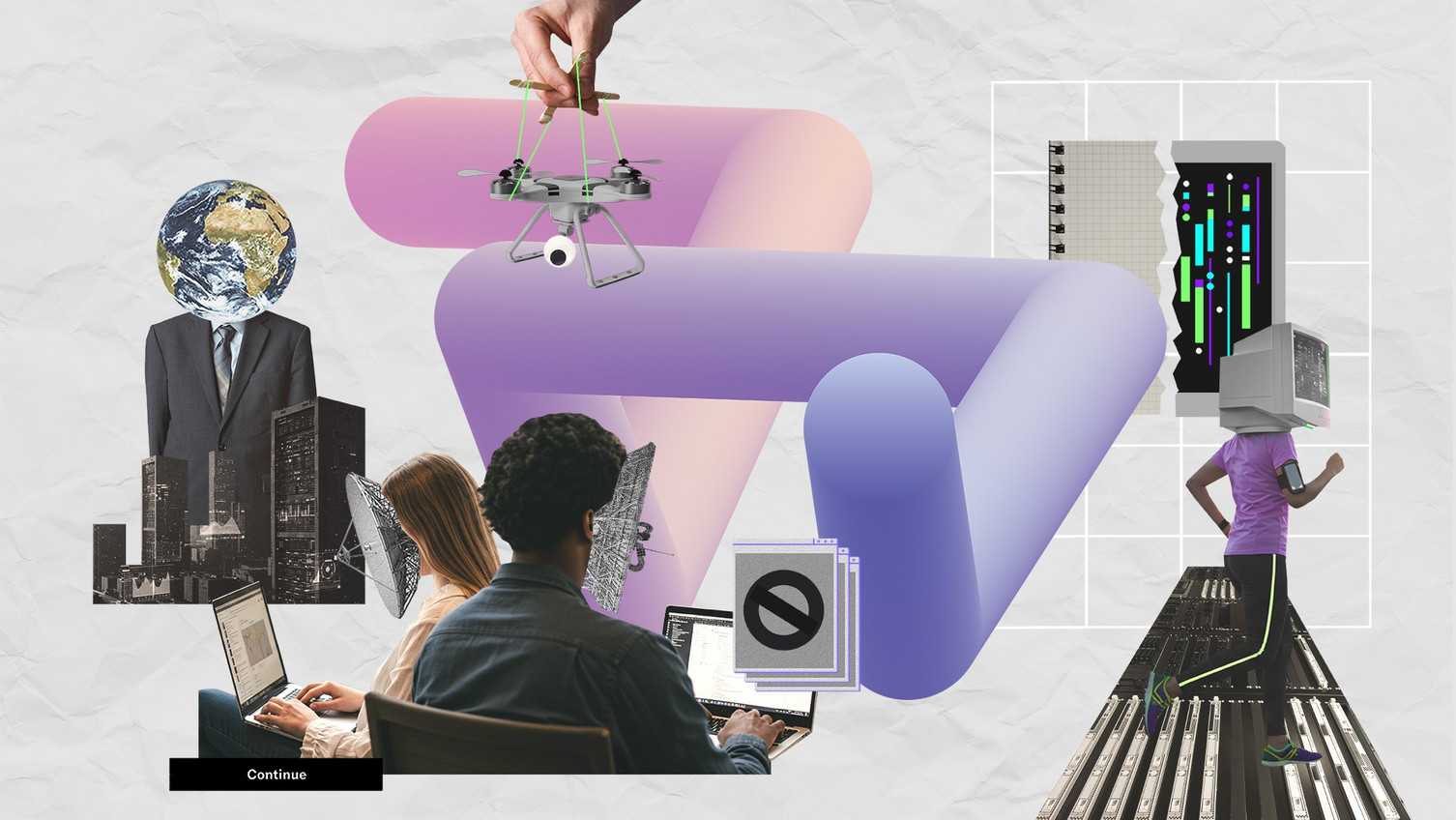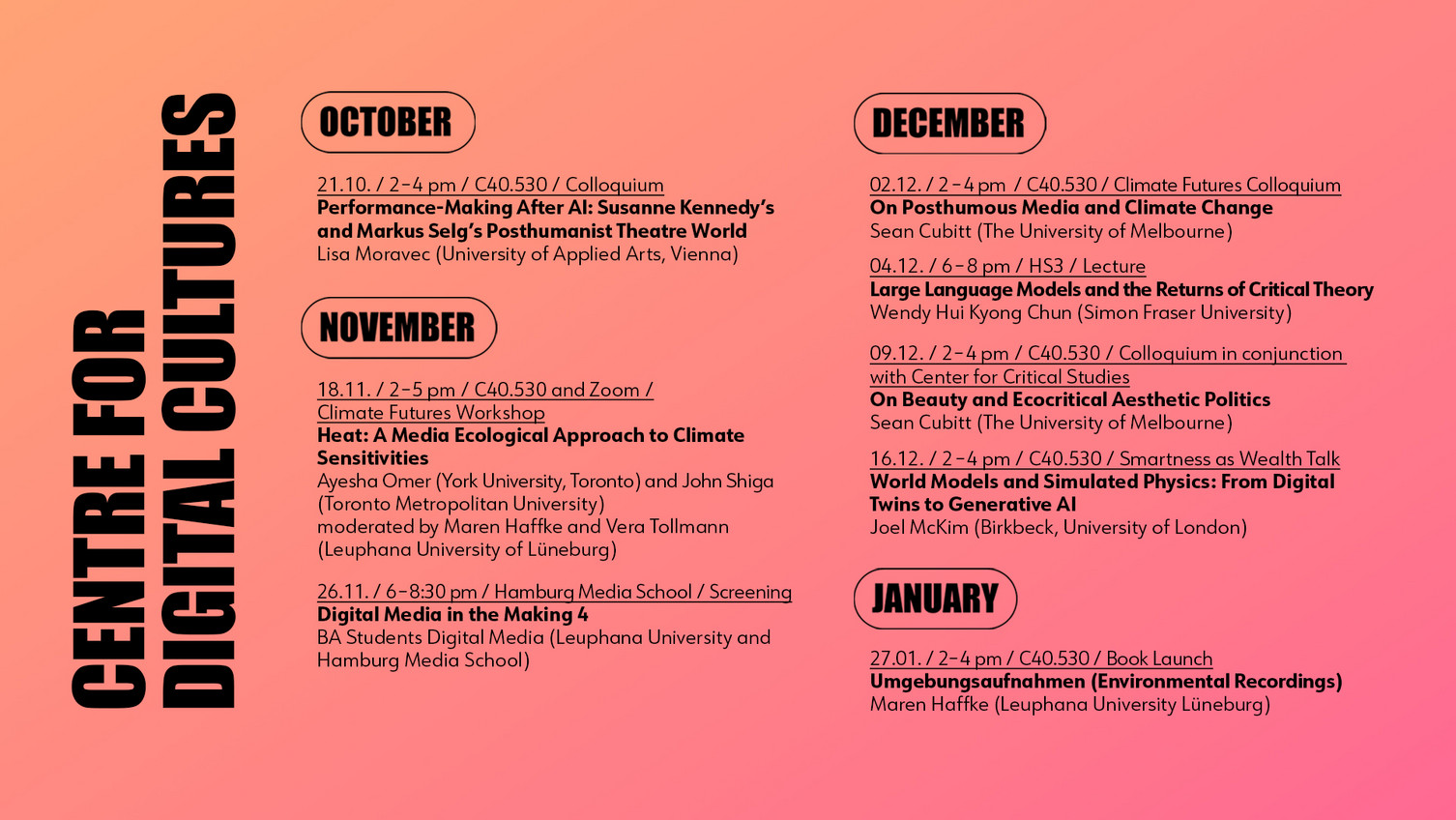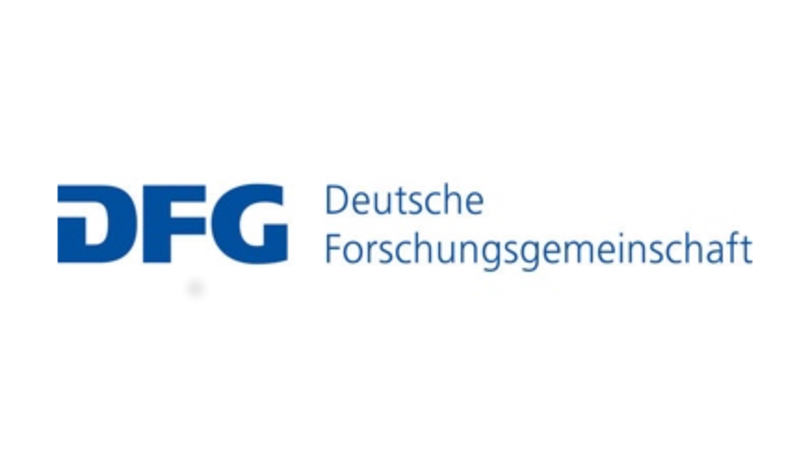Centre for Digital Cultures
Digital Cultures refer to the ways of life, practices, meanings, and social formations that emerge from and are mediated through the pervasive presence of digital media technologies and infrastructures which are constantly configuring our techniques for processing, storing, and transmitting data. This technological saturation is transforming daily practices of connecting, relating, reading, writing, perceiving, sharing, competing, and communicating. At the same time, these technologies are closely tied to major societal challenges such as climate change, global conflicts, digital divides and social injustice. In this dynamic context, the Centre for Digital Cultures (CDC) directly addresses the emergence of new and complex qualities of vernacular socio-technical life. This involves the development of advanced theory and innovative study programmes. We are concerned with the question of how we can understand and shape digital cultures today.
The digital shift re-shapes the cultural sectors, and, indeed, everyday life, politics, law, and economics. The Centre for Digital Cultures (CDC), affiliated to Leuphana University of Lüneburg, examines this shift through a range of interdisciplinary methodologies, including media, cultural and social studies, through knowledge creation and transfer, as well as by developing experimental and interventionist media practices. Established in 2012, as one of the first research centres in Europe to research the emergence of digital cultures, the CDC continues to produce cutting-edge research on socio-technical regimes of inclusion and exclusion. Since its inception, the CDC has built an innovative network and research environment, where academic institutions, practitioners, and civil society stakeholders engage with new concepts, formats, and applications within digital cultures.
Semester Programme
The events at the Centre for Digital Cultures (CDC) are dedicated to central questions of digital culture as well as the effects of the current polycrisis on social life and, more broadly, on questions and research topics in digital media and cultural studies. Particular attention is paid to the involvement of digital media technologies in these crises.
Below, you can see our upcoming events. Find more information on our current and past semester programmes here.



![[Translate to Englisch:] Portrait von Sean Cubitt](/fileadmin/_processed_/6/1/csm_Sean_Cubitt_Portraet_e51e8e61fc.jpg)




